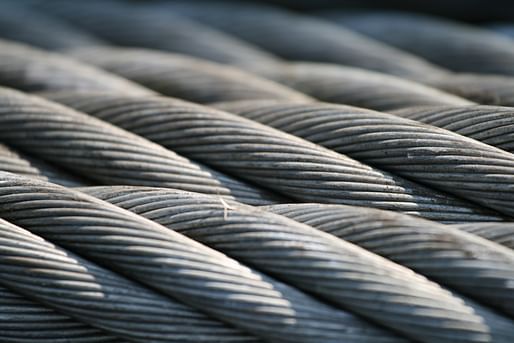

Material researchers from the United States Navy and Texas A&M University have developed a way to create 3d-printed steel that matches the tensile strength capabilities of traditional steel manufacturing.
The approach relies on a mathematical model to, as Engineering.com reports, “optimize laser settings to drastically reduce the type of printing flaws that reduce tensile strength.”
When compared with conventional casting and subtractive steel manufacture, 3d-printing fabrication typically results in a higher number of microscopic gaps within the material that result from the 3d-printers additive making process. Those who have used a desktop 3d-printer will know that by definition, the printer deposits each successive layer one on top of the other, often leaving imperfections at the edges and never quite matching exactly the intended form. That phenomenon is paralleled within the material itself, producing a 3d-printed object that is also filled with tiny air gaps and other material inconsistencies.
In a paper titled “An ultra-high strength martensitic steel fabricated using selective laser melting additive manufacturing: Densification, microstructure, and mechanical properties”, the research team describe their development of the so-called Eagar-Tsai model, a method that perfects the “melt pool geometry” of the print, according to Engineering.com, doing so without requiring “time-consuming algorithmic and permutational methods.”
The method, according to the researchers, has generated a martensite steel alloy prints that can sustain tensile pressures of up to 1.4 gigapascals, a quantity that surpasses previously known tensile strengths in 3d-printed steel alloys. The technology could potentially have far-reaching applications, including within the realms of automobile design, building component design, and machinery fabrication.
1 Comment
Clowns. War profiteers.
Block this user
Are you sure you want to block this user and hide all related comments throughout the site?
Archinect
This is your first comment on Archinect. Your comment will be visible once approved.